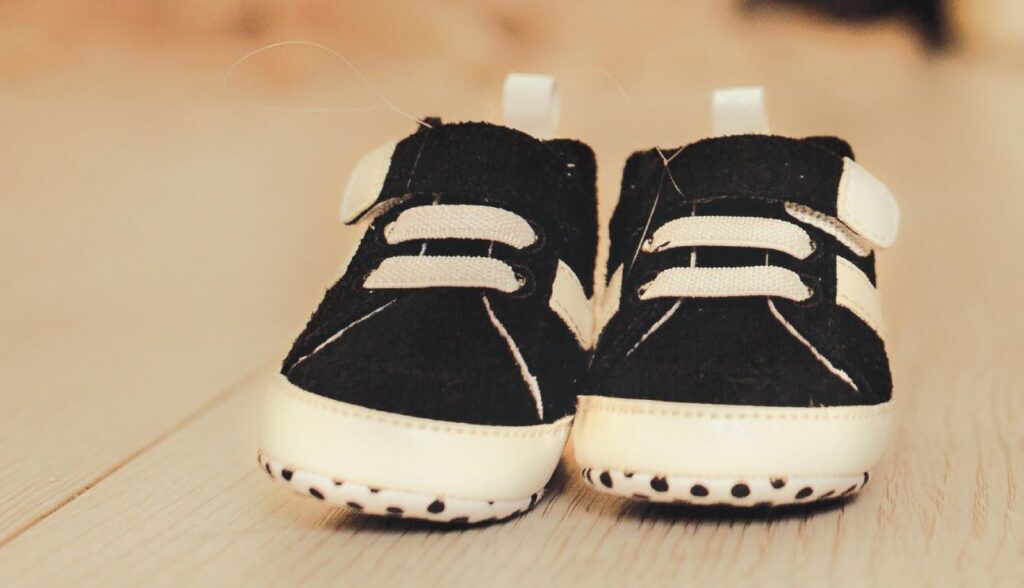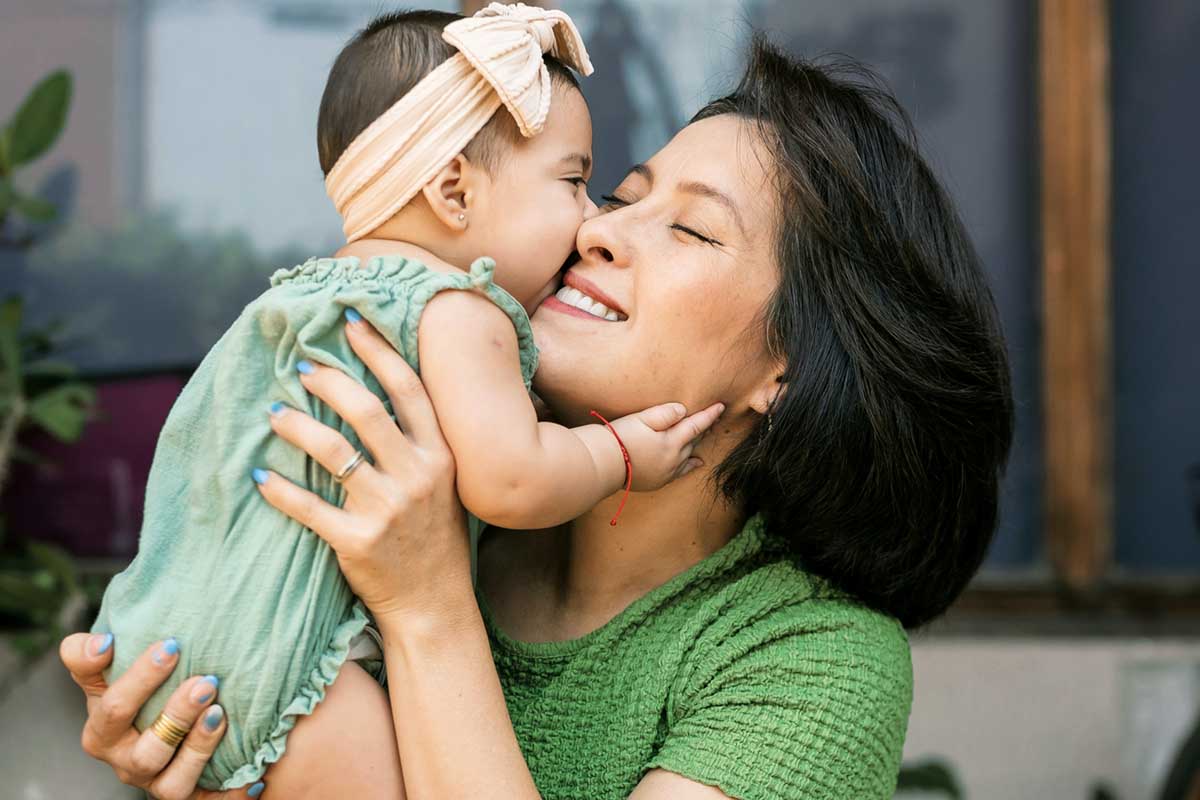Advertisement
This Is What Happens When You Become a Dad
How to thrive on dirty diapers and no sleep

Advertisement
What to (actually) expect when you’re expecting
When my wife revealed the results of the pregnancy test, I quickly went into research overdrive. I followed mommy bloggers. I googled every pregnancy term I came across. I created a never-ending laundry list of must-haves intended to keep our future child happy and healthy until he/she turned 30.
Yet all my preparation didn’t prepare me for the first time I met my son.
He was seven pounds of wrinkly perfection. I promised myself I wouldn’t cry, but then he curled his hand over my little finger and I quickly broke that promise.
Advertisement
A dose of dad brain
Apparently, it wasn’t my fault I became a sobbing mess. Blame my hormones.
My wife felt like she was a mom long before our baby was born. For guys, it’s different: your brain shifts when you meet your child. Within the first few weeks, your levels of testosterone drop and your levels of prolactin—a hormone that encourages the development of fatherly behaviour—skyrocket.
Then along comes the “love hormone” oxytocin, which kicks in as you interact and play with your new baby. In other words, the more you hang out with your little one, the more like a “dad” you begin to feel.
Advertisement
Dads make a difference
Moms immediately have so much to do. This often leaves dads on the sidelines.
In one study, the vast majority of fathers used words such as “useless” and “excluded” to describe their experiences during this early stage, specifically around feeding the baby. Yet most new dads wanted to be more involved—they just didn’t know where to start.
And it’s crucially important for the baby’s health and happiness that dads get started.
According to pediatricians, fathers play a unique role in a child’s well-being, especially around issues such as exercise, playtime, diet, and daily behaviours like reading books, setting rules, etc.
Researchers have pinpointed some fascinating impacts of the father-child relationship.
Advertisement
Dad thrills
Dads tend to get kids excited and introduce a sense of thrill, which helps a baby learn emotional regulation and healthy risk-taking.
Advertisement
Dad talk
Fathers talk to babies differently than mothers. The variation improves a baby’s language development and understanding.
Advertisement
Dad involvement
Dads help raise children who have healthier, less aggressive problem-solving skills. And fathers who are involved in the parenting process tend to be healthier, both physically and mentally, and may even live longer.
It’s not about whether you’re “as good as” your baby’s mother. It’s about the unique bond you have with your child and the unique ways you can contribute to your baby’s success and happiness.
Like more and more dads these days, I didn’t want to be a “backup parent.” I wanted to be an equal partner in sharing the burden, and the joys, of our new baby. If you do, too, here’s how.
Know that yes, you can. Studies have found that fathers are equally as capable as mothers for providing comfort and everything a baby wants.
Ask your partner what you can do to help, emotionally and physically. Make it clear you want to be involved and that you need clear direction on how you can best support your partner.
Ask for the information you want. I found that, in many cases, the doctors, lactation consultants, and other professionals would speak directly to my wife. After all, she’s the star in the show. But if there is anything that’s important to you or that you’re curious about, you may need to speak up.
Treasure this opportunity
“Get involved!” says James Smith, a dad blogger in Vancouver. He loves carrying his daughter any chance he gets, because he knows one day she’ll not want to be carried. “These are the best years for playing and being silly, so show your kids just how much you love them.”

Advertisement
Falling into the routine
I gained many incredible things the day I became a dad, but there’s something I quickly lost: sleep. On average, new parents lose 44 days of sleep in the first year.
No matter how much coffee I chugged, it didn’t change the fact that a newborn’s sleep cycle is only 50 minutes long—barely enough time to make a new bottle and go back to sleep.
I had to come up with other strategies that worked.
Advertisement
Sleep!
Sleep whenever you have a chance. Take a cat nap in the car during your lunch break. Grab an extra hour of sleep on the weekends. If you’re on baby duty, sleep when the baby sleeps (don’t try to be productive during the baby’s naps).
Advertisement
Do shift work
Split the night into two shifts: one for you and one for your partner. If your baby needs something, only one of you has to get up.
Advertisement
Don’t overreact
Don’t worry about little noises. Babies have what’s known as “active sleep” when they’ll make noise and move a bit. Jumping out of bed at the tiniest whimper robs you and your baby of important shut-eye.
Beyond sleep, the importance of self-care can’t be stressed enough. Do things that help you feel strong, relaxed, and whole. For me, that was the gym. New parents are statistically one of the most sedentary people groups, but the many benefits of exercise—from lower stress to a stronger immune system—are all things that will help you face the challenges of being a new dad.
Love yourself
“Even 15 minutes of self-care makes a huge difference,” says Jon Kline, a new dad of an 11-month-old. “Do something you enjoy that recharges you, along and without interruptions. And make sure your partner gets personal time, too. If you don’t make your emotional and mental health a priority with a new baby in the house, things will get overwhelming fast.”
Advertisement
It takes a village
Approximately 10 percent of new dads will develop depression or anxiety in the first year. And even if that doesn’t affect you, this is still a time of big change. During these times, it’s important to get support.
“I was nervous when my daughter was born,” says Daniel Lipton. He’s the founder of DadsTO, a dad support group in Toronto. “I didn’t know how to care for a baby. I put her in the wrong diapers, screwed up her nap schedule … the list is endless. It was overwhelming.”
As you embark on this journey, turn to your social circle and talk to other fathers that you admire. Learn from them. Ask for encouragement or advice. There are also regional and national support groups for fathers, offered through organizations such as the Men’s Educational Support Association and the Kids First Parent Association of Canada.
“There are other dads who are going through the exact same experience, and they want to share and laugh about some of the predicaments they’ve found themselves in,” says Lipton.
And finally, accept help. Men often shy away from this, thinking it makes them look weak, but the people around you want to celebrate with you and help you. Say yes when it’s offered!
Whether it’s preparing dinner or holding your baby for 45 minutes so you can shower and tidy up the house, accepting assistance lets you be healthier, happier, and more present for your new baby.
Unsolicited advice
People love offering advice for new dads (this article included). Sometimes, the profundity is questionable. “I was told not to stand over my kid because their eyes would get stuck looking up,” laughs blogger Casey Palmer, a new dad in Toronto. “It taught me from early on what advice to take and what we’d need to figure out by ourselves.”

Advertisement
Don’t get caught with your diaper down
Here are some insider tips that you won’t find in your baby manual.
Advertisement
Test drive
Do a test drive to the hospital and plan for traffic. When the contractions start, your partner won’t appreciate you yelling, “Hey Siri, where’s the hospital?”
Advertisement
Diaper prep
Lay out the diapers and wipes before undoing a dirty diaper. It’s a good story the first time your baby pees in your eye. It’s not so funny if it happens again.
Advertisement
Packing tip
Pack more diapers and more baby clothes than you think you’ll need. You’ll need them. Also pack a new outfit for yourself, in case you get peed on!
Advertisement
Quick hands
Get ready to reverse-Houdini your little one. Baby clothes come with an ungodly amount of snaps and buttons, which you’ll have to navigate while your baby does everything it can to stay au naturel.
Advertisement
Say yes!
When someone offers to babysit, always say yes. Even if you didn’t have any plans.
Advertisement
Know someone who is, or is about to be, a new dad?
Advertisement
Equip him
Books offer a wealth of information. Most are aimed at moms, so tell him to mentally swap in the word “parent” anytime it shows up.
Advertisement
Train him
Prenatal classes get both parents involved, and hearing other men’s questions can be very reassuring.
Advertisement
Connect him
Look for ways to help him build friendships with other fathers.
Advertisement
Include him
From decorating the nursery to giving him to-dos during the birthing experience, he’ll love feeling needed.
Advertisement
Delegate to him
Being a new parent is confusing. He’ll love knowing where he’s needed and what he needs to do.
Advertisement
A table for three
When it comes to breastfeeding, moms often feel trapped in the feeding cycle of an always-hungry infant. Dads can pop on a bowtie and apron and serve up five-star mealtime assistance.
Advertisement
Set the table
Create a cozy feeding nook for mom with everything she needs, such as supportive pillows, a blanket, and fun reading material (this magazine counts!).
Advertisement
Start with appetizers
Baby isn’t the only one who’s hungry. Mom needs extra calories to recover from childbirth. Ask what her favourite snacks and drinks are and keep them stocked.
Advertisement
Keep her company
Who wants to eat alone? Hang out and keep her company.
Advertisement
Don’t split the cheque
Whether it’s cleaning bottles or getting a burp cloth, play butler and bring mom anything she needs.





